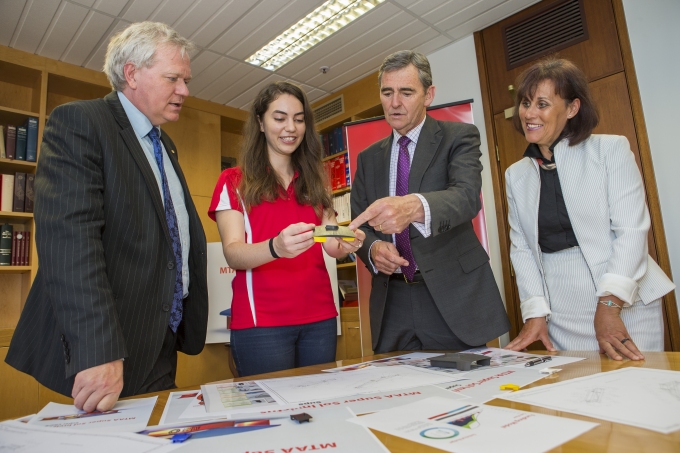The first team from the Australian National University (ANU) to take part in the World Solar Challenge has received a major boost with MTAA Super, the $10 billion Canberra-based superannuation fund, joining the project as its naming sponsor.
The ANU team will be known as MTAA Super Sol Invictus, and will comprise of undergraduate students from a range of disciplines across the ANU.
MTAA Super’s contribution to the project will be matched by the ANU, ensuring the team will be on the starting line in Darwin for the World Solar Challenge in October.
“MTAA Super’s sponsorship means we can now focus on building our solar car and meet the technical and logistical challenges involved with the 3,000km race across Australia,” said team leader Emily Rose Rees.
MTAA Super Chairman the Hon John Brumby said the Trustee was delighted to support the work of the talented students and designers at ANU.
“For MTAA Super, the project marries two important passions of the fund: innovation and environmental sustainability. MTAA Super’s decision to partner with the ANU in supporting the team has clear synergies with one of our goals, which is to inspire optimism and growth by connecting us with our community,” Mr Brumby said.
ANU Vice-Chancellor Professor Brian Schmidt AC welcomed the MTAA Super sponsorship, and said it was a great example of how the University could work with industry.
“This is a great new partnership and a wonderful collaboration between business and some of our most talented students, working at the cutting edge of innovation and technology,” Professor Schmidt said.
“This is a truly inspirational project that brings industry and innovation together. I look forward to seeing the MTAA Super Sol Invictus car in action and wish the team the best of luck for their challenge.”
The Bridgestone World Solar Challenge (BWSC) is a biennial race for solar powered cars. The event attracts competitors ranging from universities such as Stanford, MIT and Cambridge through to technical institutes and private enterprises. Companies such as Volkswagen, General Motors, Ford and Panasonic use the race as a testbed for their new technologies and components.
Advances pioneered by participant teams have led to development of regenerative braking used in modern electric vehicles and instant data-diagnostic equipment such as that used by BMW to provide service technicians.
The MTAA Sol Invictus team has been working on ground-breaking designs for its car over the past year. The car will use cutting-edge solar panels and Lithium ion battery technology to power a highly-efficient electric motor for the 3,000km race.
The team also announced the solar car would be named MTAA Super Charge. The car is due to be ready for road testing by August this year.

